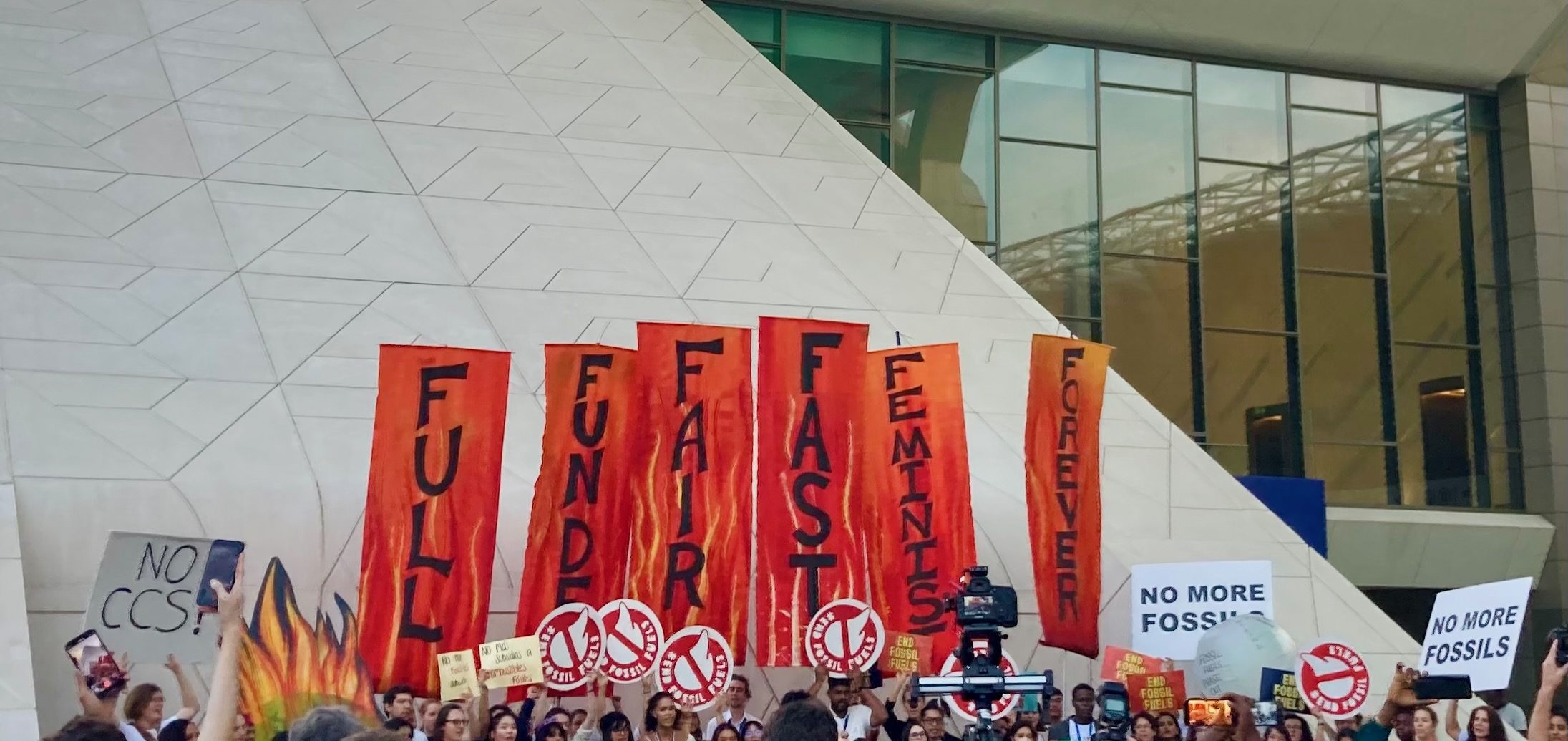
The Global Stocktake Just Enough to Avert Freefall
As you may recall, the negotiations at COP28 circled around two important concepts – the 1.5°C target and the attachment to fossil fuels. Negotiations on these items already seemed intractable at the beginning of the week. Then, a letter from OPEC (Organization of the Petroleum Exporting Countries) leaked, and the drama boiled over.
The letter fiercely opposed “phase out” language on fossil fuels, citing what it called “undue and disproportionate pressure against fossil fuels.” Even more, it made clear that OPEC countries “proactively reject any text or formula that targets energy, i.e. fossil fuels, rather than emissions.” In other words, no agreement on fossil fuels could apparently appease OPEC.
In the fallout over the weekend, the COP President convened a convened a majlis – an Arabic term that refers to a sitting room or a council in many Islamic countries. President Sultan Al Jaber invited the high-level ministers from every party to sit in a circle around him to speak “heart to heart.” In those conversations, stark lines emerged, somewhat tracking the divide implied by the leaked letter – oil-producing countries wanted to focus on emissions, not fuel sources.
The day after the majlis, the COP Presidency produced a draft agreement that seemed to take the side of OPEC countries. It included no real commitment on fossil fuels. Nations and civil society reacted harshly. With COP28 in the waning hours, a sense of impending doom lingered. With that gloomy uncertainty in the air, our delegation departed Dubai. And then COP28 went into overtime, and the parties somehow pulled a small victory from the jaws of defeat. Preserving a glimmer of hope for global climate governance and multilateralism more broadly.
Let’s look at the text of that final agreement on the Global Stocktake a bit more closely, focusing on the two key issues.
On the 1.5°C target, the agreement mentions it more than a dozen times. The most significant of which appear in paragraphs 3-5, reading (emphasis added):
- [The Conference of the Parties serving as the meeting of the Parties to the Paris Agreement . . .]
o Reaffirms the Paris Agreement temperature goal of holding the increase in the global average temperature to well below 2 °C above pre-industrial levels and pursuing efforts to limit the temperature increase to 1.5 °C above pre-industrial levels, recognizing that this would significantly reduce the risks and impacts of climate change;
o Underscores that the impacts of climate change will be much lower at the temperature increase of 1.5 °C compared with 2 °C and resolves to pursue efforts to limit the temperature increase to 1.5 °C;
o Expresses serious concern that 2023 is set to be the warmest year on record and that impacts from climate change are rapidly accelerating, and emphasizes the need for urgent action and support to keep the 1.5 °C goal within reach and to address the climate crisis in this critical decade;
Looking at the above language, only one of the highlighted phrases even arguably looks like a binding commitment by nations. And that commitment is only to “pursue efforts” to limit increase to 1.5 °C.
On fossil fuels, the final agreement at least said something; OPEC was unsuccessful in keeping it out of the document entirely. However, neither “phase out” nor “phase down” language were used. Instead, the final text “calls on parties to contribute to”:
- Transitioning away from fossil fuels in energy systems, in a just, orderly and equitable manner, accelerating action in this critical decade, so as to achieve net zero by 2050 in keeping with the science.
Arguably, “transitioning away” from something is the same thing as phasing it out, so, in a general sense, the language reads strong. However, upon closer inspection, the reader will note that there is no binding language preceding it.
The best and worst features of international law were on display at COP28. Countries from across the globe recognized a common problem and resolved to work together to address. At the same time, the system designed to operationalize that ongoing commitment depends on consensus and moves slowly and rarely realizes its lofty ambitions. At the end of the day, we landed in a familiar place – compromised, watered down language about what should be done. At least we have something; multilateralism (and the planet) will live another day.

